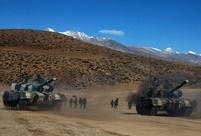 Army aviation: Adding wings to infantry
Army aviation: Adding wings to infantry
 Old photos of Chinese President Xi Jinping’s father and his families
Old photos of Chinese President Xi Jinping’s father and his families
 Bikini show in 2014 China Final of Miss Tourism World
Bikini show in 2014 China Final of Miss Tourism World
 Close-up view of August Aerobatic Team
Close-up view of August Aerobatic Team
 Goddesses married in 2014
Goddesses married in 2014
 Polar region photos raise worldwide awareness of global warming
Polar region photos raise worldwide awareness of global warming
 Get off at the last stop — Beijing Subway in vision
Get off at the last stop — Beijing Subway in vision
 Top 100 beauties in the world!
Top 100 beauties in the world!
 Gallery: Who is the most beautiful one?
Gallery: Who is the most beautiful one?
 If you like autumn, put your hands in the air!
If you like autumn, put your hands in the air!
On Sunday, a new ticketing system was put into use on Beijing's subway network. The new system, which is distance-based, is more expensive than the previous flat 2 yuan ($0.32) fare. It is estimated that the passenger flow at peak time in the morning fell by 5.23 percent.
The inevitable complaints surfaced on the Internet. But generally, the fare adjustment was smooth and many people showed understanding. This shows that mainstream society is clear that Beijing's subway system can't be propped up by government subsidies for ever. But since price hikes are not something to cheer about, complaints are normal.
Subway fares in Beijing had gradually risen till 2007. Perhaps due to the upcoming Olympic Games at that time, the fare then decreased to the flat 2 yuan. The public applauded the move, but soon the government's financing could not sustain these price levels.
The new government had been trying to tell people about the role of the market, but it is not easy to persuade people to sacrifice their interests.
The rise in the public transportation fare will have some consequences. As migrant workers and some low-income employees live in suburban areas, the increase in transportation fees will surely impose pressure on their employers. This indicates that low-income positions will be squeezed. From a long-term perspective, companies that rely on cheap labor in first-tier cities such as Beijing will face more challenges.
The public transportation fare in Beijing was the lowest in China, but housing prices in Beijing's suburban areas are more expensive than in many big cities. As the fares rise, Beijing will make long-term policy adjustments.
The public transportation system cannot fully rely on the market, but it still needs the market doctrine as guidance. The public places many demands on the government. The government also has plans to develop cities and it has to weigh up different factors.
Some people say that the government should follow the public, but should also have decision-making capabilities and not be led by the nose. They say that if social media had emerged 30 years ago, China would have become another India. Such declarations lack precision, but sound reasonable.
China's city management faces a tough test. The country is developing rapidly with various changes. It is difficult to have fixed price systems and social systems. The Chinese people often feel that the prices of commodities are rising, but seldom notice that their life is improving.
It is hoped that today's younger generation, despite complaining, will find their life is getting better. The cheap subway fares will become but a memory.
 Tempting Yunnan cuisine
Tempting Yunnan cuisine Joint anti-piracy drill
Joint anti-piracy drill PLA conducts tactical drill in Tibet
PLA conducts tactical drill in Tibet Beautiful Chinese woman
Beautiful Chinese woman Chestnut girl goes viral online
Chestnut girl goes viral online Time travel photos become a hit in military academies
Time travel photos become a hit in military academies Unknown 'monster' fish caught in Shandong
Unknown 'monster' fish caught in Shandong 20 years on: Relocated Three Gorges residents through lens
20 years on: Relocated Three Gorges residents through lens PLA HK Garrison veterans leave behind beautiful smiles
PLA HK Garrison veterans leave behind beautiful smiles Making sex safe
Making sex safe Gmail glitch fuels unnecessary speculation
Gmail glitch fuels unnecessary speculation Shenzhen imposes limits on purchases of new cars
Shenzhen imposes limits on purchases of new cars A Hongkonger working with mainland media confronted by both sides in Occupy Central reporting
A Hongkonger working with mainland media confronted by both sides in Occupy Central reportingDay|Week|Month